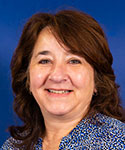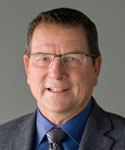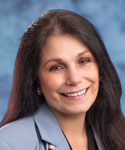CPAs Look to CPE for Inspiration
–
October 14, 2022

CPE course offerings have evolved over the course of the pandemic. New technological advantages and niche training needs are compelling CPAs to delve into new knowledge areas, find better ways to obtain leads, empower staff and change outdated modes of operating forever. We asked several CPE providers what content trends they’re seeing and what methods of learning CPAs are gravitating towards today.
What kind of learning/programs are in high demand among CPAs looking to fulfill CPE requirements?
John H. Higgins, CPA.CITP
We have experienced a number of interesting changes in CPA learning patterns (a.k.a. CPE) over the past year, partially as a result of the pandemic environment and partially due to the rapid evolution of technology impacting CPAs and other financial professionals. Regarding delivery formats, there has been a substantial transformation to favoring online or virtual learning programs over in-person learning. Obviously, this trend was originally fueled by the pandemic and related lockdowns. However, it also introduced many CPAs to the convenience of online learning, so we believe most of the transformation will stick. Now that many CPA associations are beginning to offer in-person learning again, there is clearly a segment of the profession that prefers in-person learning and are excited to be back networking and learning with their peers. Many associations are offering a hybrid format of online virtual attendance and in-person for selected events, which optimizes the opportunities to meet their members’ needs. Related to this trend, we are experiencing a greater number of registrations coming in closer to the event date, even the day of, since online events don’t require local or long-distance travel, as well as the fact that there is an abundance of online learning offerings to choose from. This has also increased interest in on-demand/self-study courses that can be taken 24x7. The last point about this is a substantial trend towards shorter programs of one to two CPE credits. People are fatigued with long days of on-screen learning.
Angela Russo, MBA
Our Virtual CPE Pass was extremely successful during the pandemic as CPAs looked for convenient and affordable ways to meet their annual CPE requirements. This trend continues today as we are still seeing demand for virtual programming. On-demand learning, in particular, draws a lot of interest since CPAs can obtain CPE when and where they want it. The NJCPA is adding on-demand programs and subscriptions to address our members’ needs. We’ve partnered with many vendors that provide high-quality and relevant content, and we also create our own content. Micro-certifications in niche areas is trending and will be offered to members.
Are CPAs looking to solidify particular niche areas of expertise?
Renee Rampulla, CPA, CGMA
The CPA profession has always been very forward thinking. As the physical, virtual and technological environment of our clients and employers change, the CPA profession continues to evolve in order to meet the demands brought about by these changes. There are several emerging topics that come to mind. For example, there is an increased need to understand the digital asset ecosystem. How are digital assets accounted for, valued and audited? What types of controls are needed and are they regulated? Another emerging topic is environmental, social and governance (ESG). There are increased pressures in the United States and the global business environment to report ESG data. ESG presents a wonderful opportunity for CPAs who have always been viewed as the trusted professional. CPAs are learning how to leverage their expertise and skill sets to ensure the reliability of ESG reporting. Lastly, as the reliance on the use of service organizations (i.e., outsourcing payroll processing, cloud computing) continues to increase, the need to understand the effectiveness of the service organization’s internal controls and safeguards also increases. Knowing what a service organization controls (SOC) report is, when it is needed and what type of report is needed becomes increasingly important. There will always be a demand for conventional accounting and auditing courses, but as the business environment evolves, continuing education for CPAs will need to expand to meet emerging topics and opportunities.
Donny C. Shimamoto, CPA.CITP, CGMA
I’m seeing more requests than ever this year for training related to digital transformation — not how to actually do it from a technology perspective, but how accountants can help their firms or companies balance risk and innovation. Cybersecurity remains a highly requested session, too, especially as it relates to risk assessment, incident response and business continuity — all key areas for CPAs to collaborate with IT to ensure the business impacts of cybersecurity are considered and addressed.
John H. Higgins, CPA.CITP
Specific niche areas that have grown in interest include data analytics and dashboard reporting, cryptocurrency and blockchain technology, CPA practice technology and CAAS (client accounting and advisory services) business models and best practices.
Angela Russo, MBA
Relevant CPE hot topics include Schedules K-2/K-3; cannabis; New Jersey Pass-Through Business Alternative Income Tax (BAIT); environmental, social and governance (ESG); and data analytics.
Are CPAs looking to augment certain skillsets over others as they prepare for the future?
Richard Daisley, CPA
While technical expertise is fundamental to our profession, CPAs that are managing the significant disruption caused by the COVID-19 pandemic are forging ahead with training in the areas of interpersonal skills, coaching and leadership, and enhancing corporate culture and work environment inclusiveness to provide themselves with a competitive advantage. To varying degrees, all professionals have struggled with the COVID-19-induced changed work environment. CPAs need to adapt to this new environment in which face-to-face interaction is reduced and opportunities for real-time coaching and on-the-job development are curtailed. Proactive CPAs are engaging in training programs that emphasize improving communication skills, especially those skills utilized in a virtual work environment. This includes developing skills such as effective listening and those that identify barriers and solutions to effective virtual communication.
Further, with less one-on-one engagement, firms are also emphasizing training that develops coaching skills, such as problem identification and solving skills, critical-thinking and effective employee motivation. While critical to performing work effectively and efficiently, these skills also greatly enhance employee retention and commitment.
Lastly, firm leaders are focusing their training on creating a challenging yet engaging firm culture that creates ample opportunity for all employees to thrive. While money will always matter, training that focuses on identifying what motivates employees and how best to develop them and recognize their contributions creates a competitive advantage, especially in a period of tight resources. While there will always be the need for formal training and on-the-job technical development for CPAs of all levels of experience, firms that are proactive in creating professionals with well-rounded skillsets will have a significant competitive advantage.
Donny C. Shimamoto, CPA.CITP, CGMA
When I talk about digital transformation, I explain the business analyst and data scientist skillsets: analyzing processes and data structures and creating data models that represent business operations. These tie back to the accounting information systems course that many of us took when we originally did our accounting degrees and is critical as CPAs seek to go beyond financial data into operations — and also as they try to utilize more data analytics and visualizations.
Angela Russo, MBA
We will continue to offer many opportunities for CPAs to prepare for the future in technology, communication, supervision of staff and, most importantly, leadership skills in the new work environment.
Renee Rampulla, CPA, CGMA
It is not coincidental that the CPA Exam is changing to recognize the competencies and skills needed as the profession moves forward into the future. We are certainly in a “CPA Evolution.”
 | Angela RussoAngela Russo, MBA, is the director of learning at the NJCPA and can be reached at arusso@njcpa.org. Learn more from Angela Russo: |
 | Donny C. ShimamotoDonny C. Shimamoto, CPA.CITP, CGMA, is the CEO and founder of IntrapriseTechKnowlogies LLC. He can be reached at donny@intraprise.us. |
 | John H. HigginsJohn is the founder and CEO of Higgins Advisory, LLC, established with the mission of helping CPAs, CFOs and other financial professionals to successfully guide their firms and business organizations through a successful digital transformation that leverages the power of emerging technologies such as artificial intelligence, blockchain technology, data analytics, workflow automation and more.
John is a seasoned entrepreneur with experience as the founder of two separate accounting technology advisory firms that were acquired by larger organizations. In addition, he has experience with a local CPA firm and as a technology advisory practice leader partner in a national CPA firm.
John shares his expertise as a nationally recognized thought leader, strategic advisor, and speaker on accounting technology through coaching and speaking engagements. His primary contribution is his passion for helping the profession move forward through the understanding and adoption of emerging technologies. Learn more from John H. Higgins: |
 | Renee RampullaLearn more from Renee Rampulla: |
Richard DaisleyRichard Daisley, CPA, is the vice president of accounting and auditing curriculum at Surgent CPE. Learn more from Richard Daisley: |